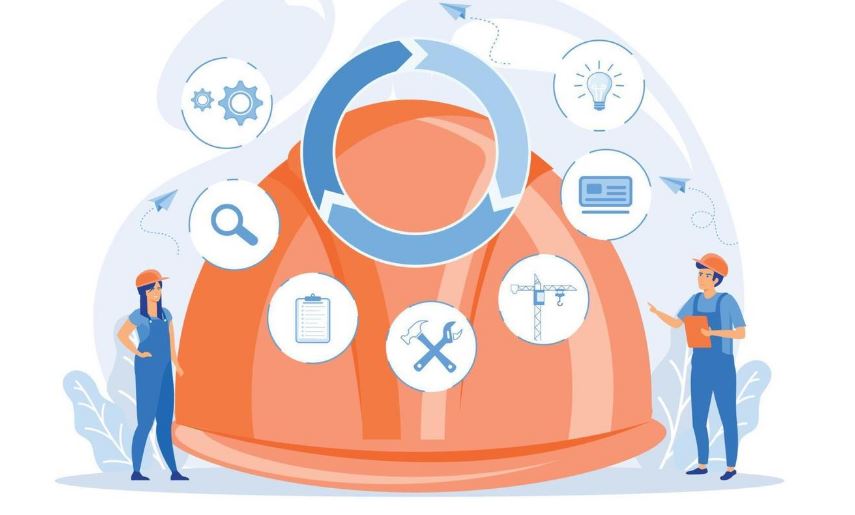
A Comprehensive Guide to Overcoming Modern Challenges in Construction Project Management.
Share
The construction industry is currently undergoing a significant transformation, propelled by advancements in technology, increasing regulatory requirements, and evolving client expectations. While modern tools and methodologies have contributed to enhanced efficiency and transparency, contemporary construction project management continues to encounter several substantial challenges. Stakeholders must understand these obstacles to deliver projects successfully within the constraints of time, budget, and quality. The subsequent sections will delineate the primary challenges and their implications for effective project delivery.
1. Cost Overruns and Budgetary Control
Cost management remains one of the most persistent challenges in construction project management. Unpredictable material price fluctuations, inflationary pressures, design changes, and unforeseen site conditions often contribute to overruns. Failure to implement effective cost forecasting mechanisms can lead to financial stress and negatively impact profitability. Adopting real-time cost-tracking systems, robust financial planning, and contingency reserves is crucial for maintaining fiscal discipline.
2. Scheduling and Time Delays
Delays in project completion are a frequent occurrence and often result in penalties, reputational damage, and increased costs. Causes include supply chain disruptions, weather conditions, labor shortages, and prolonged approval processes. Comprehensive scheduling tools, supported by artificial intelligence and real-time progress monitoring, can mitigate risks and enhance predictability. Proactive scheduling also ensures that interdependent tasks are efficiently coordinated.
3. Labor Shortages and Skill Gaps
The availability of skilled labor has become a pressing concern. Many regions face shortages of trained professionals, which reduces productivity and affects quality. Moreover, the adoption of new technologies requires specialized expertise, creating additional pressure on workforce capability. Investment in training, upskilling programs, and the integration of automation technologies such as robotics and prefabrication can partially address these challenges.
4. Quality Control and Rework
Maintaining consistent quality across all stages of construction is essential, but it is also challenging to achieve. Design errors, improper execution, and substandard materials frequently result in rework, leading to time and cost escalations. Building Information Modelling (BIM), digital twins, and real-time quality monitoring systems can help identify and resolve potential issues before they escalate. Standardized quality protocols further reduce the scope for errors.
5. Health, Safety, and Environmental Compliance
Construction sites are inherently high-risk environments, with workers exposed to accidents, hazardous materials, and physical strain. Regulatory bodies have introduced stringent compliance measures to enhance safety and environmental performance. However, ensuring adherence across large-scale projects remains a challenge. The use of IoT-enabled safety wearables, AI-based hazard detection, and rigorous training can significantly improve health and safety outcomes.
6. Sustainability and Green Building Requirements
The growing emphasis on sustainable development and green building standards has introduced new complexities into project management. Developers must integrate energy efficiency, waste reduction, and eco-friendly materials into design and construction practices. While this shift creates long-term value, it also increases upfront costs and requires specialized expertise. Achieving certifications such as LEED or GRIHA demands meticulous planning and monitoring.
7. Regulatory Approvals and Legal Complexities
Navigating the regulatory landscape is another significant challenge. Projects often face delays due to land clearances, environmental approvals, and compliance with real estate regulations such as RERA. Legal disputes further add to uncertainty. Early engagement with regulatory authorities, transparent documentation, and thorough due diligence can help streamline approval processes and reduce litigation risks.
8. Integration of Technology
Technological innovations, such as BIM, drones, IoT, and artificial intelligence, offer immense benefits; however, their integration presents significant challenges. Resistance to change, high initial investment, and lack of training frequently hinder adoption. A phased approach to implementation, coupled with continuous training and change management strategies, is necessary to maximize the value of these technologies.
9. Stakeholder Coordination and Communication
Construction projects involve multiple stakeholders, including developers, contractors, investors, government bodies, and end-users. Miscommunication and misalignment of objectives frequently result in disputes, inefficiencies, and delays. Cloud-based project management platforms, transparent dashboards, and structured communication protocols ensure greater accountability, alignment, and trust among stakeholders.
10. Supply Chain Disruptions
Global supply chains remain vulnerable to disruptions caused by geopolitical tensions, transportation bottlenecks, and pandemics. Such interruptions lead to delays in material procurement and escalation of costs. Diversifying supplier networks, adopting blockchain-enabled procurement systems, and maintaining safety stock can reduce the adverse impacts of supply chain volatility.
11. Risk and Uncertainty Management
Finally, construction projects are subject to multiple uncertainties, including economic fluctuations, climate change impacts, and unforeseen external shocks. Traditional risk management approaches are often insufficient in addressing these emerging threats. Employing advanced risk assessment frameworks, scenario planning, and adaptive contract models can enhance resilience and preparedness.
Conclusion
Contemporary construction project management is influenced by a complex array of challenges that encompass financial, operational, technological, and regulatory aspects. Effectively addressing these challenges necessitates a comprehensive approach that incorporates advanced technology, sustainable practices, and robust collaboration among stakeholders. By fostering innovation while maintaining a strong emphasis on compliance, safety, and clear communication, the industry can achieve enhanced efficiency, increased accountability, and sustainable long-term success.
